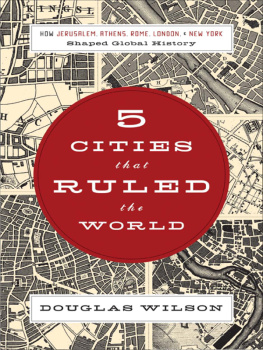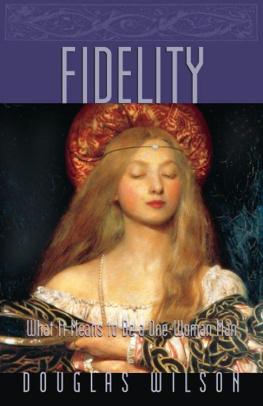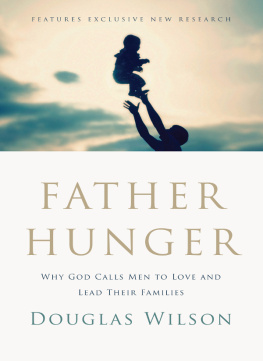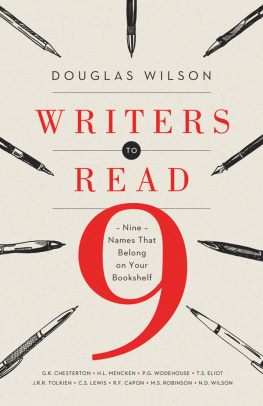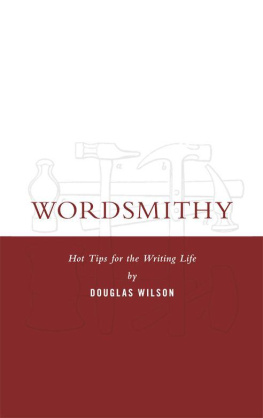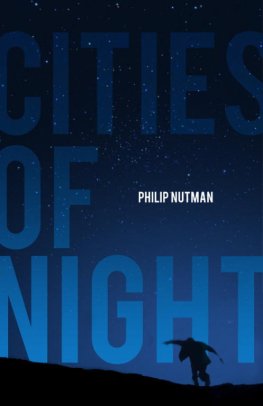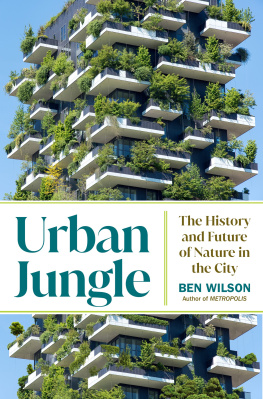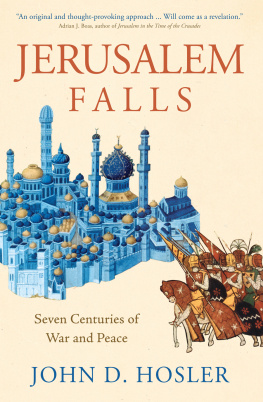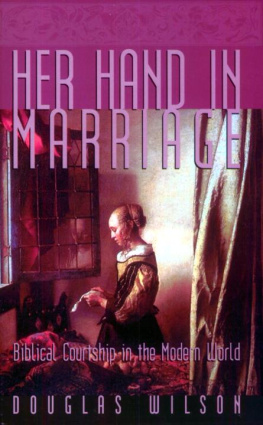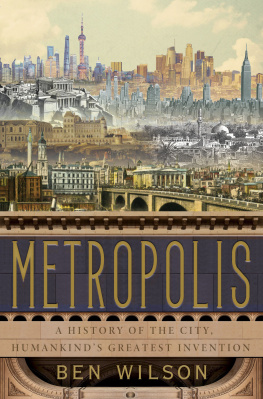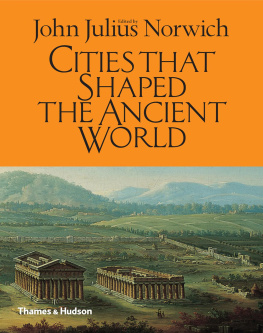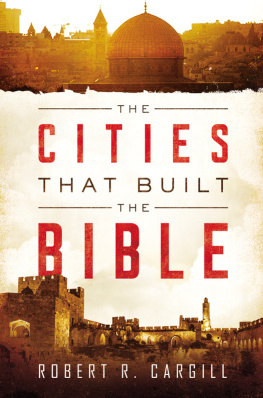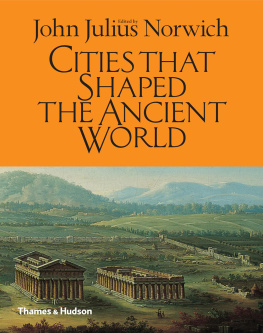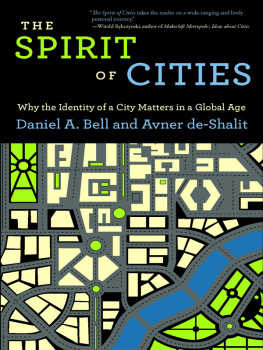CITIES
That
RULED
the
WORLD
DOUGLAS WILSON

2009 by Douglas Wilson
All rights reserved. No portion of this book may be reproduced, stored in a retrieval system, or transmitted in any form or by any meanselectronic, mechanical, photocopy, recording, scanning, or otherexcept for brief quotations in critical reviews or articles, without the prior written permission of the publisher.
Published in Nashville, Tennessee, by Thomas Nelson. Thomas Nelson is a registered trademark of Thomas Nelson, Inc.
Page design: Mike McDaniel
Thomas Nelson, Inc., titles may be purchased in bulk for educational, business, fund-raising, or sales promotional use. For information, please e-mail SpecialMarkets@ThomasNelson.com.
Scripture quotations noted ESV are from THE ENGLISH STANDARD VERSION. Copyright 2001 by Crossway Bibles, a division of Good News Publishers.
Scripture quotations noted NEB are from THE NEW ENGLISH BIBLE. Copyright 1961, 1970 by The Delegates of the Oxford University Press and the Syndics of the Cambridge University Press. Reprinted by permission.
Library of Congress Cataloging-in-Publication Data
Wilson, Douglas, 1953
Five cities that ruled the world : how Jerusalem, Athens, Rome, London, and New York shaped global history / Douglas Wilson.
p. cm.
Includes bibliographical references and index.
ISBN 978-1-59555-136-8
1. Civilization, Western--History. 2. World history. 3. Cities and towns History. I. Title.
CB245.W554 2009
909dc22
2009031680
Printed in the United States of America
09 10 11 12 13 RRD 6 5 4 3 2 1
This book is for my father, Jim Wilson.
He loves this kind of stuff.
CONTENTS
J acques Ellul, a French theologian and writer, once noted the intertwined nature of human history and the city: All of mans history is not limited to the history of the city and its progress. But they have nevertheless intermingled, and neither can be understood alone. Here we will be considering the stories and legacies of the great cities of Jerusalem, Athens, Rome, London, and New York and what they mean to us.
They ruled the world in a unique way, unlike other cities. No earthly city can rule the world forever, but many more than five have ruled the political world temporarily. These five have been singled out because, despite their moments of glory shared with many others, they have also had an enormous inf luence down to the present day. In many ways that inf luence is more potent than the power of triremes (ships with three levels or banks of oarsmen) or rockets.
As Scripture tells the story of the world, it begins with a garden, and it ends that story with a Garden City. Social critic David Hegeman described the arc of this particular story very well: Culturative history is Gods unfolding purpose for man, in which mankind plays a chief role in the development and transformation of the earth from garden-paradise to the glorious city of God. But in between these two visions, here in the murk of history where we live, we have a great deal of turmoil and difficulty, and a lot of that difficulty relates to the question, whatever are we to do about our cities?
Jacques Ellul took a pretty grim view of the situation: The city is the direct consequence of Cains murderous act and of his refusal to accept Gods protection. Cain has built a city. For Gods Eden, he substitutes his own. On this take, the first thing that Cain wanted to do in his rebellion against God was to build a city. For Ellul, this was far more significant than Cain simply needing a way of getting the garbage collected and the mail delivered; it was a statement of fundamental religious rebellion. His citynamed Enoch after his sonwas established to compete with the God he had rejected.
At the other end of the spectrum from Ellul, we have the writers of travel guides. We have civic pride and hard-core allegiance to the sports teams of the nearest regional city. We have swelling patriotism, full of the kind of hope that wants us to see alabaster cities gleam undimmed by human tears. We have poets, apparently a bit more realistic, who celebrate their particular citys prowess or accomplishments in a more earthy and clear-eyed fashion. Take Carl Sandburgs famous poem about Chicago, for instance:
Hog Butcher for the World,
Tool Maker, Stacker of Wheat,
Player with Railroads and the Nations Freight
Handler;
Stormy, husky, brawling,
City of the Big Shoulders
Sandburg saw the problems that Ellul would identify as wickedness, and he even agreed that his city was wicked and bare-knuckled and crooked and brutal. But he gave the sneer back to the critic and celebrated his city anywayproud to be alive and coarse and strong and cunning. Perhaps this is what we should expect. As Jane Austen had Edmund say in Mansfield Park, We do not look in great cities for our best morality. But even this may be illusory. I was once visiting my grandmothers home in a tiny, sleepy farm town in Nebraska. While there I saw a bumper sticker that said, You dont see much in a small town, but what you hear makes up for it.
Even with such pressing problems, we shall see that Elluls strictures are perhaps too severe. He pointed to an important truth, but we must not take it as the entire truth. There is another city besides Babylon, and each of these five cities (and all the others like them) has a relationship to this second city as well. If all cities are Babylon in one sense, what is the relationship of all cities to the New Jerusalem? After all, in the vision of this heavenly city that the apostle John was given, the kings of the earth bring their considerable honor into it: By its light will the nations walk, and the kings of the earth will bring their glory into it (Rev. 21:24 ESV). Not only do we have a city here, but we have all the rulers of all other cities paying their respects and submitting themselves to this glorious city. If all cities are wicked Babylon, what are they doing in here, inside the pearly gates?
The longer we work on such a thorny problem, the more necessary it will be for us as moderns to reflect on what previous generations have said about it. This is a perennial problem. If we are willing to hear Augustine on the subject, we will learn that ultimately there are only two citiesthe City of God and the city of man. He wrote his great work of theological history, The Cityof God, in order to comfort Roman Christians who had been distressed by the sack of Romeone of the cities we will be discussing shortly. After Constantine had made the Christian faith the faith of the empire, it had been easy for Christians to assume that the Eternal City had the future all sewn up. Rome ruled the world, and Christ was now the ruler of Rome. What could go wrong? So when a bunch of unwashed barbarians sacked the city, the psychic damage was far more significant than the actual physical damage done to Rome. How was this even possible? Augustine wrote this majestic work to teach these believers to distinguish the city of man from the City of God. If Rome is to be identified with the kingdom of God, then what happens to our faith when Rome falls?
So this is something that we clearly need to do, but the devil, as someone once said, is in the details. The boundary lines between the two cities are sometimes blurryat least to us here in these twenty-first-century seats. As I have noted, Augustine worked on this problem with his description of the two cities. Martin Luther did something similar in his view of the two kingdoms. The Puritans of New England sought to hammer out a closer working relationship between the two cities in their one city on a hill. The problem has historically been a hard one within Christendom, and on either side of the faithful now is the option of radical Islam, where there is no such distinction between the cities, or secular liberalism, where the only city that matters is the city of man. In this latter view, one can believe in the City of God, if he likes, behind his eyes and between his ears, just as he can also believe in Farleys ghost.
Next page
